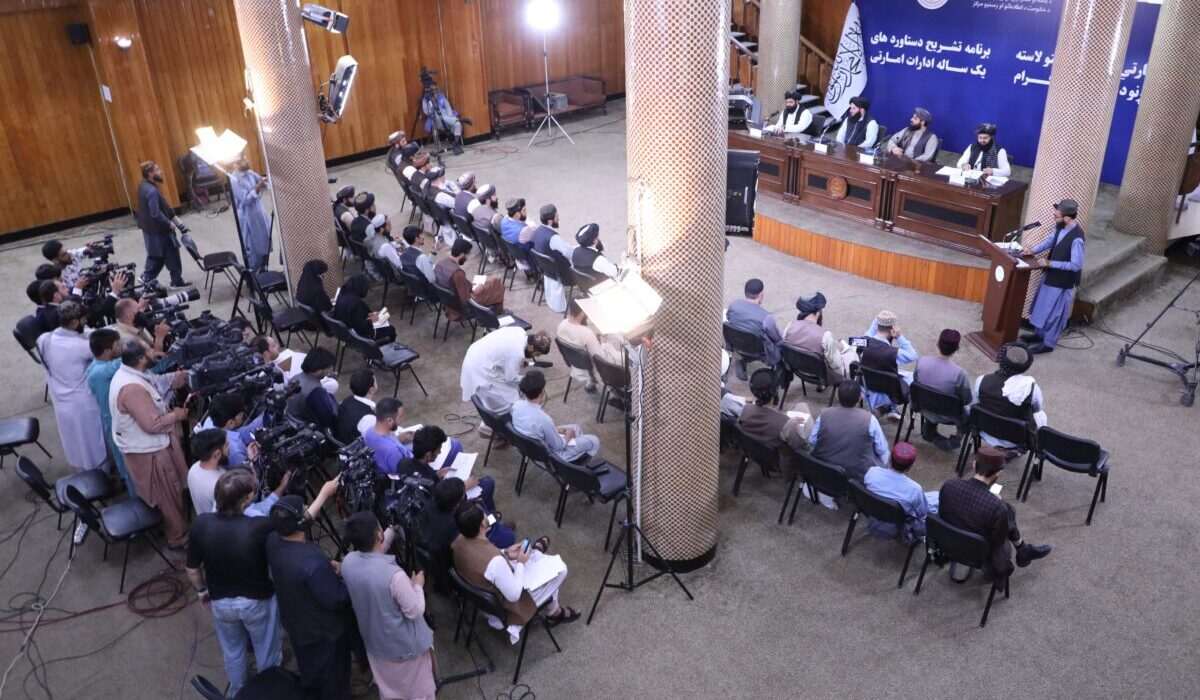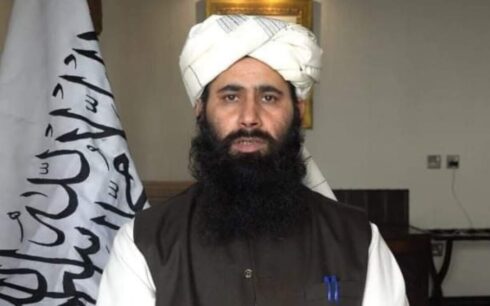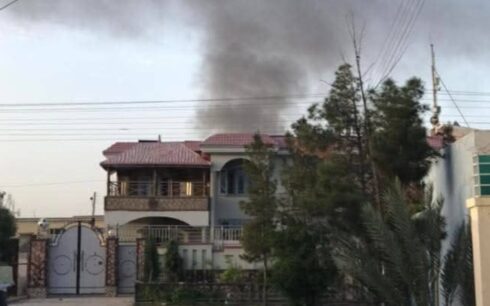KABUL, Afghanistan — Taliban have asserted that their morality law has not disrupted media operations, claiming there are “no restrictions” on broadcast media.
This comes as TV networks have stopped operations in at least four provinces in less than a month after Taliban started implementing its new law.
In a speech delivered in Balkh, Zia-ul-Haq Haqmal, the Taliban’s Deputy Minister of Publications in the Ministry of Information and Culture, dismissed reports of media crackdowns as “false” and “propaganda,” maintaining that no media outlets have been shut down by the authorities.
Haqmal acknowledged that the Amr bil Maroof wa Nahi Anil Munkar (Promotion of Virtue and Prevention of Vice) laws do set guidelines for media content but contended that these do not obstruct their operations. “Reports suggesting that orders have been issued to close media outlets in various provinces are baseless,” Haqmal said. “The notion of media closures and restrictions is just a rumor.”
However, these assurances come amid mounting evidence that media freedoms are under siege. Over the past month, the Taliban have reportedly banned the broadcast of images depicting living beings in several provinces, including Kandahar, Takhar, Badghis, and Khost.
Contradicting Haqmal’s statement, recent reports highlighted that Radio Zhwandon in Khost was shut down for airing music during its programming, a move that has heightened concerns about escalating media suppression.
Journalists and media advocates have voiced their growing alarm over these restrictions. One reporter, speaking on condition of anonymity for fear of reprisal, described the challenges: “We are prohibited from producing video reports or capturing images of living subjects. This situation has made us anxious about our future. Many of us are forced to take on labor-intensive work, even though opportunities are limited. It feels like a suffocating environment for the press.”
Another journalist remarked, “Since the Taliban’s takeover, they have exerted considerable pressure on journalists and disrupted media operations.”
A third journalist echoed these sentiments, saying, “The regulations banning the broadcast of images of living beings have raised serious concerns about our ability to continue working. Every day under Taliban rule, we see more and more restrictions imposed on our work.”
Hashmat Wajdani, a spokesperson for the Journalists in Exile Association, observed, “The Taliban have systematically imposed restrictions on the media. These limitations make reporting increasingly difficult and are a major concern for Afghanistan’s media community.”
Some residents also expressed dismay at the growing curbs on press freedom. “The restrictions imposed by the Taliban have complicated our work,” one resident said. “Restricting media is like silencing the voice of the Afghan people.”
Over the past three years, the Taliban have implemented some of the most severe restrictions on media activities, including bans on female journalists covering stories, the censorship of political and news programs, the prohibition of joint broadcasts by male and female hosts, and restrictions on coverage of security incidents involving anti-Taliban resistance forces.





